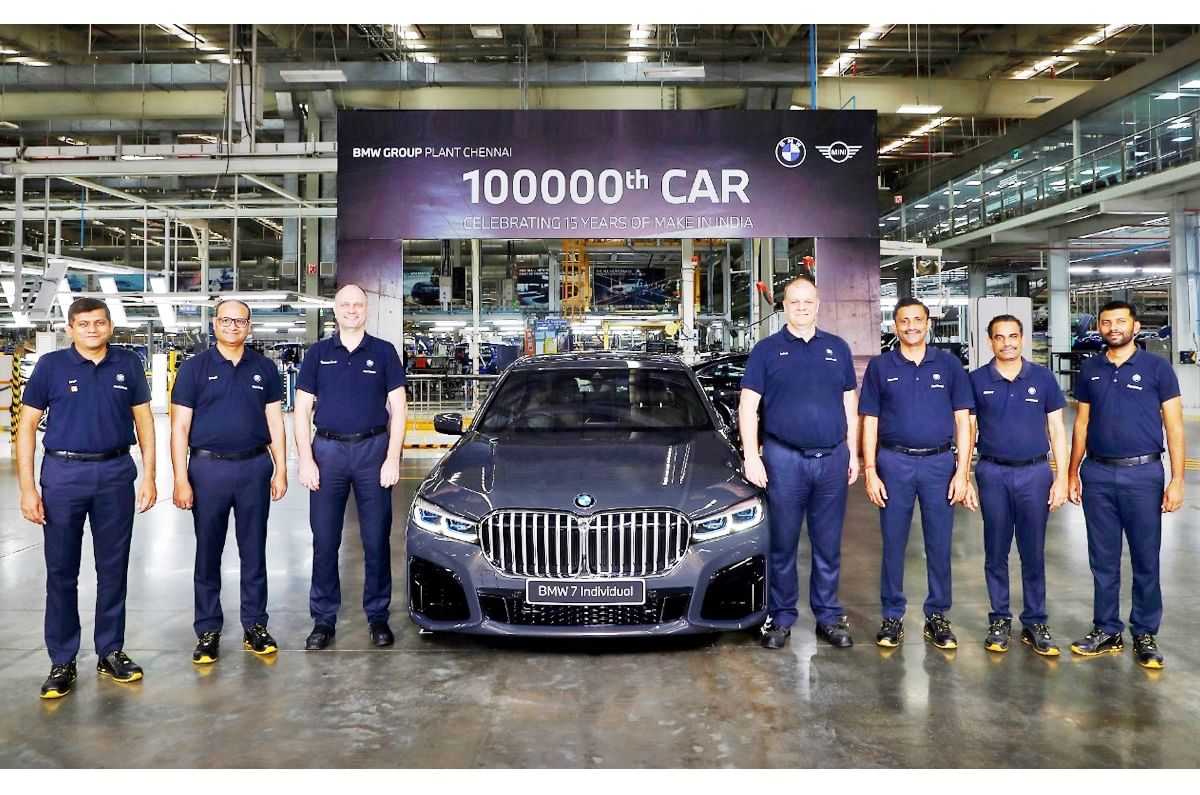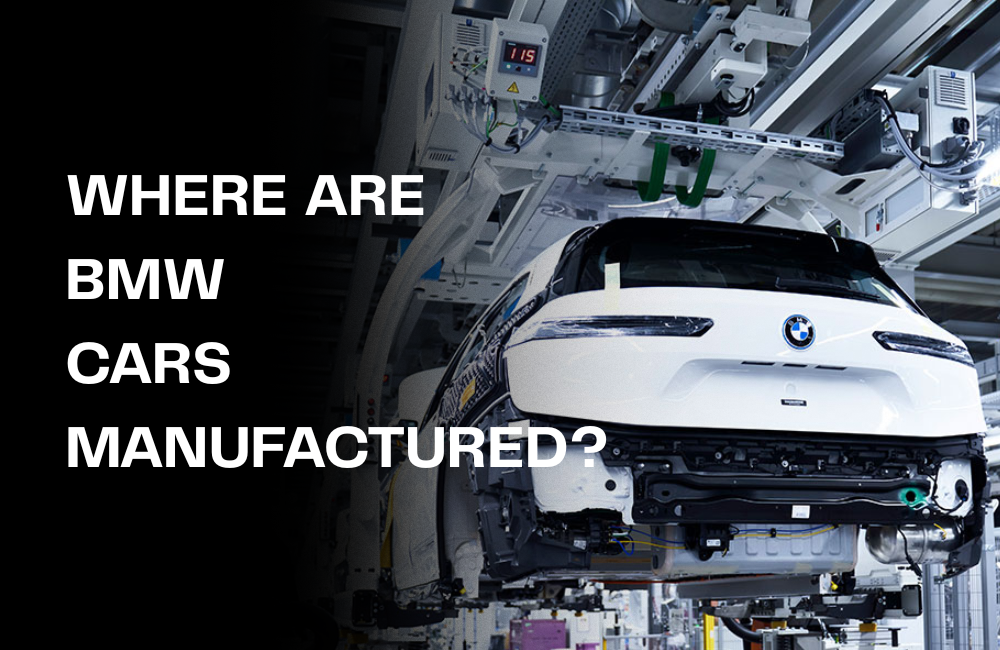When it comes to BMW, few things evoke as much admiration as the brand’s combination of luxury, performance, and innovation.
A critical part of that success lies in where and how these cars are made.
With manufacturing plants scattered across the globe, each facility is an essential piece of the puzzle, ensuring that BMW’s signature vehicles are built with precision and care.
In this article, I’ll dive deeper into the locations where BMW cars are produced, focusing on the types of vehicles, including electric ones, that roll off the assembly lines in each of these cutting-edge facilities.
BMW Manufacturing in Germany

Germany is the heart of BMW’s operations, with several important plants contributing to the brand’s prestige. The country’s plants produce a broad range of vehicles, from compact cars to luxurious sedans and high-performance SUVs, as well as electric and hybrid models.
1. Munich Plant: The Historic Hub of BMW
Munich, the birthplace of BMW, continues to be a crucial hub for the company. Located in the heart of Bavaria, this plant has produced some of the most iconic BMW models over the years.
-
Key Models Manufactured: The Munich plant primarily produces the BMW 3 Series, a cornerstone of the brand, as well as the BMW 4 Series and BMW 7 Series, luxury sedans that epitomize BMW’s commitment to elegance and innovation.
-
Electric Vehicles: The Munich plant also plays a significant role in BMW’s transition to electrification. The BMW i4, an electric sports sedan, is manufactured here, marking the brand’s push into the high-performance electric vehicle (EV) market. Additionally, the plant assembles plug-in hybrid models, contributing to BMW’s sustainability efforts.
The Munich facility is a blend of tradition and modernity, incorporating advanced manufacturing techniques while remaining faithful to the company’s rich history.
2. Regensburg Plant: Precision and Excellence
The Regensburg plant, another key location in Germany, produces a range of BMW models with a focus on quality and precision manufacturing.
-
Key Models Manufactured: Among the cars made here are the BMW 1 Series and the BMW 3 Series, which are part of the brand’s entry-level to mid-range lineup. The 3 Series, in particular, is one of the brand’s most enduring models.
-
Electric Vehicles: Regensburg is also home to the production of BMW’s electrified models. The BMW 2 Series Active Tourer, a compact MPV, has both traditional and hybrid powertrains, making the Regensburg plant a significant part of BMW’s transition to more eco-friendly vehicles.
This plant is known for its commitment to precision and using advanced production methods, such as automated quality checks, to ensure that every vehicle meets BMW’s exacting standards.
3. Dingolfing Plant: Luxury and Performance
The Dingolfing plant is one of BMW’s largest and most significant manufacturing facilities, known for producing large luxury sedans and performance-oriented models.
-
Key Models Manufactured: The Dingolfing plant produces the BMW 5 Series, 7 Series, and 8 Series, some of the company’s most luxurious and high-performance sedans. Additionally, the BMW X5, a large luxury SUV, is also manufactured here, contributing to BMW’s strong position in the luxury SUV market.
-
Electric Vehicles: BMW’s flagship luxury electric vehicle, the BMW iX, is manufactured in Dingolfing. The iX is a fully electric SUV that combines the brand’s performance legacy with cutting-edge electric technology. Additionally, the Dingolfing plant produces the BMW i4, a high-performance electric sedan, showcasing the brand’s future-forward approach.
Dingolfing is known for its innovative use of technology and manufacturing processes, including the introduction of automated processes and sustainable practices that reduce the plant’s environmental footprint.
4. Leipzig Plant: Compact and Electric Innovation
Leipzig is another pivotal location within BMW’s network, known for producing smaller vehicles as well as electric and hybrid models.
-
Key Models Manufactured: The Leipzig plant manufactures the BMW 2 Series and the BMW i3, which was BMW’s first fully electric vehicle, marking the brand’s foray into the EV market. The plant also produces the BMW i8, a plug-in hybrid sports car that combines sustainability with high-performance engineering.
-
Electric Vehicles: The Leipzig plant plays a key role in BMW’s electric future. In addition to the i3, the BMW iX3, the brand’s fully electric SUV, is produced here. The iX3 shares its platform with the BMW X3 but features an all-electric powertrain, providing a glimpse of BMW’s future electric lineup.
Leipzig’s focus on electric mobility, combined with its commitment to producing high-performance cars, ensures that it remains at the forefront of BMW’s electrification strategy.
BMW’s Global Manufacturing Footprint
While Germany remains the center of BMW’s operations, the company has strategically expanded its manufacturing presence to meet the global demand for its cars. Let’s take a look at some of the key production facilities located outside of Germany, where BMW continues to build its reputation for quality and innovation.
1. United States – Spartanburg, South Carolina: The SUV Powerhouse
Spartanburg is BMW’s largest manufacturing plant outside of Germany, and it has become synonymous with the production of high-performance SUVs.
-
Key Models Manufactured: The Spartanburg plant is best known for producing BMW’s X Series vehicles, including the X5, X6, X7, and the BMW X4. The plant also manufactures the BMW M models, such as the X5 M and X6 M, which are high-performance variants of these SUVs.
-
Electric Vehicles: Spartanburg is also involved in the production of BMW’s electric vehicles. The BMW iX, the brand’s flagship electric SUV, is assembled here. The iX is a luxury electric vehicle that combines performance with sustainability, and its production in Spartanburg highlights BMW’s commitment to electric mobility.
Spartanburg’s role in BMW’s SUV production and its involvement in electric vehicle manufacturing make it a key pillar in the company’s global strategy.
2. China – Shenyang: A Focus on the Local Market
BMW has invested heavily in China, and the Shenyang plants, which operate under a joint venture with Brilliance China Automotive, are crucial for catering to the Chinese market.
-
Key Models Manufactured: The Shenyang plants produce a variety of models, including the BMW 3 Series, 5 Series, and several X Series models like the X1 and X3. These vehicles are specifically tailored for the Chinese market, where demand for luxury cars is growing rapidly.
-
Electric Vehicles: The Shenyang plants also manufacture the fully electric BMW iX3, marking the brand’s commitment to expanding its electric offerings in China, where the government is heavily promoting EVs.
The Shenyang facility is a key player in BMW’s global production strategy, ensuring that the brand can meet the increasing demand for luxury vehicles in China while also preparing for the electric vehicle revolution.
3. India – Chennai: A Growing Market for Luxury Vehicles

In India, the Chennai plant produces vehicles tailored to the preferences of Indian customers, combining BMW’s luxury with the demands of the local market.
-
Key Models Manufactured: The Chennai plant produces popular models like the BMW 3 Series, BMW 5 Series, and BMW X1, ensuring that the brand remains competitive in the growing luxury car market in India.
-
Electric Vehicles: BMW’s commitment to the Indian market also includes electric vehicles, with the BMW iX3 expected to be produced at this facility. India’s rapidly expanding EV infrastructure and growing consumer interest in sustainable mobility are driving this shift.
The Chennai plant is a testament to BMW’s ability to adapt to diverse markets while maintaining its high standards of luxury and performance.
4. South Africa – Rosslyn: Serving the African Market
BMW’s Rosslyn plant in Pretoria, South Africa, plays an important role in serving the African market with premium vehicles.
-
Key Models Manufactured: The Rosslyn plant produces the BMW 3 Series, which has been a longstanding favorite in the region. This facility is crucial for maintaining BMW’s presence in Africa, offering high-quality vehicles at competitive prices.
-
Electric Vehicles: While the Rosslyn plant’s focus has largely been on traditional vehicles, it is expected that future investments will include the production of electric vehicles, as BMW continues to expand its global EV production.
Conclusion
BMW’s global manufacturing footprint reflects the brand’s dedication to producing high-performance vehicles, whether they are traditional gas-powered models or cutting-edge electric vehicles.
From Germany to the United States, China, India, and South Africa, each plant plays a vital role in ensuring that BMW remains at the forefront of luxury, performance, and sustainability.
As the brand transitions to a more electrified future, plants like Munich, Leipzig, and Spartanburg will continue to lead the way in shaping the next generation of BMW vehicles, combining innovation with the driving experience that enthusiasts have come to love.
